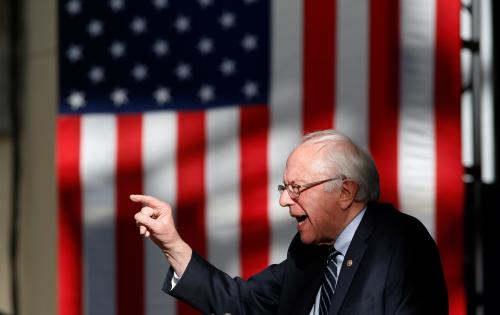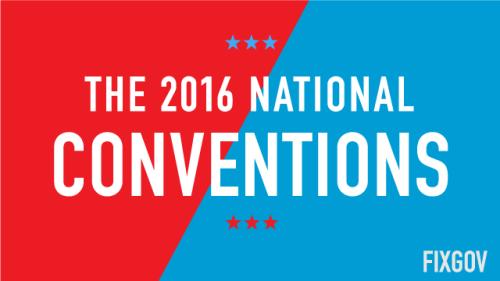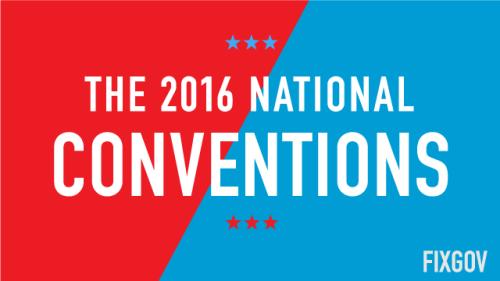As Hillary Clinton came to the podium to deliver her acceptance speech, a well-run Democratic convention had already accomplished a number of important political tasks. Careful preparation, especially the incorporation of platform planks that Bernie Sanders had pushed into the Party’s platform, helped heal the breach between Sanders’ supporters and the Clinton campaign. Well-crafted speeches by leading Democrats laid out the stakes in this year’s election and sharpened the case against Donald Trump.
Still, Hillary Clinton faced a number of challenges. The first is the inescapable reality that she was running to succeed a two-term incumbent of her own party whose administration she served as a senior official. In a year dominated by vocal demands for change, she could not escape being the candidate of continuity.
This did not mean that she was compelled to run as the defender of the status quo, however. She was obligated to defend the record of the past eight years, but not to claim that all the problems Barack Obama inherited have been solved. Her task was to achieve a credible balance between continuity and change—to argue that President Obama created a firm foundation for the change we must build together during the next decade. George H. W. Bush’s 1988 acceptance speech is a model of how this balance can be struck successfully, albeit in circumstances very different from what Hillary Clinton faces.
Her second challenge was to drive a wedge between change in the abstract, which 7 in 10 Americans favor, and the kind of change Donald Trump is offering, which is ill-informed, misguided, and much too risky to be worth the gamble—or so she must argue.
We’ve seen this before. In 1980, Americans registered deep discontent with the direction of the country at home and abroad. Although there was no doubt that Ronald Reagan represented a dramatic change of course, the Carter campaign kept the election close for months by contending that Reagan’s program was a leap in the dark and worse, that he lacked the temperament to be president and would place the country at risk. It was only Reagan’s reassuring demeanor in the presidential debate that allowed him to surmount the people’s doubts about him and win a substantial victory.
Her third challenge, on which much ink has been spilled, was to begin the task of reversing negative perceptions of her character—most important, that she cannot be trusted—that have deepened during the course of the campaign at the hands of supporters of both Bernie Sanders and Donald Trump. This is not a task that one speech could hope to accomplish. Indeed, her campaign manager speculated recently that the entire campaign might not suffice to do so and that people would come to trust her only when they saw her carrying out her duties as president.
Part of the problem is that Hillary Clinton is a person who values personal privacy in a confessional culture that demands self-disclosure. To be sure, her husband’s and daughter’s convention speeches helped provided a more rounded picture of the kind of person she is. But although she could choose to allow more of her emotions and commitments to show in her own right, she was bound to maintain a measure of reserve that is decidedly out of fashion. Her challenge was to make a virtue of necessity by underscoring the principles (and the faith) that have guided her public life. This strategy could also help counter a related accusation, that she is a cold-blooded pragmatist, moved by burning ambition, who lacks a moral core and changes direction in response to shifting political winds. In the end, trust rests on authenticity.
So measured against these three core challenges, how successful was Hillary Clinton’s acceptance speech?
It was not an oratorical masterpiece, but it was a sturdy, workmanlike presentation of who she is, how she thinks, and what kind of president she would be. She acknowledged being a public servant who has always been more comfortable with the “servant” rather than the “public” dimensions of her work. She affirmed the obvious: she is a policy wonk who sweats the details, as she insisted a president should. She set forth her guiding principles and quoted the Methodist credo. She praised the accomplishments of the Obama-Biden administration while making it clear that she is far from satisfied with the status quo. She laid out her plans for building on the foundation the incumbent has created.
And she raised questions about Donald Trump that go to the core of his candidacy. Does he know enough to be president? Does he have any plans to fulfill his grand promises? Is he a man of character? And most pointedly: does he have the temperament to serve as commander-in-chief? She quoted one of his self-congratulatory utterances—“I know more about ISIS than the generals do.” After a pause to let his words sink in, she replied, “No, Donald, you don’t.” One suspects that even Americans who do not support her nonetheless agreed with her.
In one of the speech’s most notable lines, she said that “A man you can bait with a tweet is not a man we can trust with nuclear weapons.” To drive home the point, she recalled one of the Cold War’s most dangerous moments—the Cuban missile crisis—and President Kennedy’s reflection that weak, reckless men could have dragged us into catastrophe. The contrast she sought to underscore was clear: her cool, experienced steadiness versus Trump’s shoot-from-the hip instability.
By itself, a single speech cannot solve a candidate’s problems. But it can set a sense of direction and mark out a way forward. Hillary Clinton’s acceptance speech was a good beginning—an honest presentation of self. In that sense, it was completely authentic. And authenticity is the basis of trust.
It is hard to see what else—or what more—she could have done. Now she must ensure that her campaign drives home the message of this speech. And then it will be up to the American people to decide whether to accept what she is offering.






Commentary
The real Hillary Clinton showed up—and asked for America’s trust at the DNC
July 29, 2016